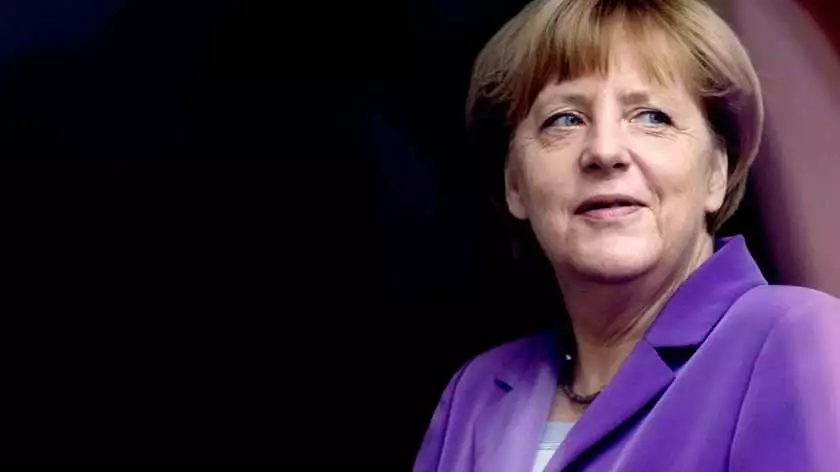German Chancellor Angela Merkel on Wednesday took the oath of office in parliament, launching her fourth-term government in Europe’s biggest economy.
Lawmakers in Berlin’s glass-domed Reichstag had elected her with a margin of 364-315 with nine abstentions. Merkel was then formally appointed by President Frank-Walter Steinmeier before taking the oath of office in the lower house.
Merkel was born in Hamburg in then West Germany and moved to East Germany as an infant when her father, a Lutheran clergyman, received a pastorate in Perleberg. She obtained a doctorate in quantum chemistry in 1986 and worked as a research scientist until 1989. Merkel entered politics in the wake of the Revolutions of 1989, and briefly served as a deputy spokesperson for the first democratically elected East German Government headed by Lothar de Maizière in 1990.
Following German reunification in 1990, Merkel was elected to the Bundestag for the state of Mecklenburg-Vorpommern, and has been reelected ever since. As the protégée of Chancellor Helmut Kohl, Merkel was appointed as the Federal Minister for Women and Youth in Kohl’s government in 1991, and became the Federal Minister for the Environment, Nature Conservation and Nuclear Safety in 1994.
After her party lost the federal election in 1998, Merkel was elected Secretary-General of the CDU before becoming the party’s first female leader two years later in the aftermath of a donations scandal that toppled Wolfgang Schäuble.
Following the 2005 federal election, Merkel was appointed Germany’s first female Chancellor at the head of a grand coalition consisting of the CDU, its Bavarian sister party, the Christian Social Union (CSU), and the Social Democratic Party of Germany (SPD). In the 2009 federal election, the CDU obtained the largest share of the vote and Merkel was able to form a coalition government with the Free Democratic Party (FDP). At the 2013 federal election, Merkel’s CDU won a landslide victory with 41.5% of the vote and formed a second grand coalition with the SPD, after the FDP lost all of its representation in the Bundestag. In the 2017 federal election the CDU again became the largest party, and she was reelected to her fourth term on 14 March 2018.
In 2007, Merkel was President of the European Council and played a central role in the negotiation of the Treaty of Lisbon and the Berlin Declaration. One of Merkel’s consistent priorities has been to strengthen transatlantic economic relations. Merkel played a crucial role in managing the financial crisis at the European and international level, and she has been referred to as “the decider.” In domestic policy, health care reform, problems concerning future energy development and more recently her government’s approach to the ongoing migrant crisis have been major issues during her Chancellorship. On 26 March 2014, Merkel became the longest-serving incumbent head of government in the European Union and she is currently the senior G7 leader.
Discover more from The Source
Subscribe to get the latest posts sent to your email.








